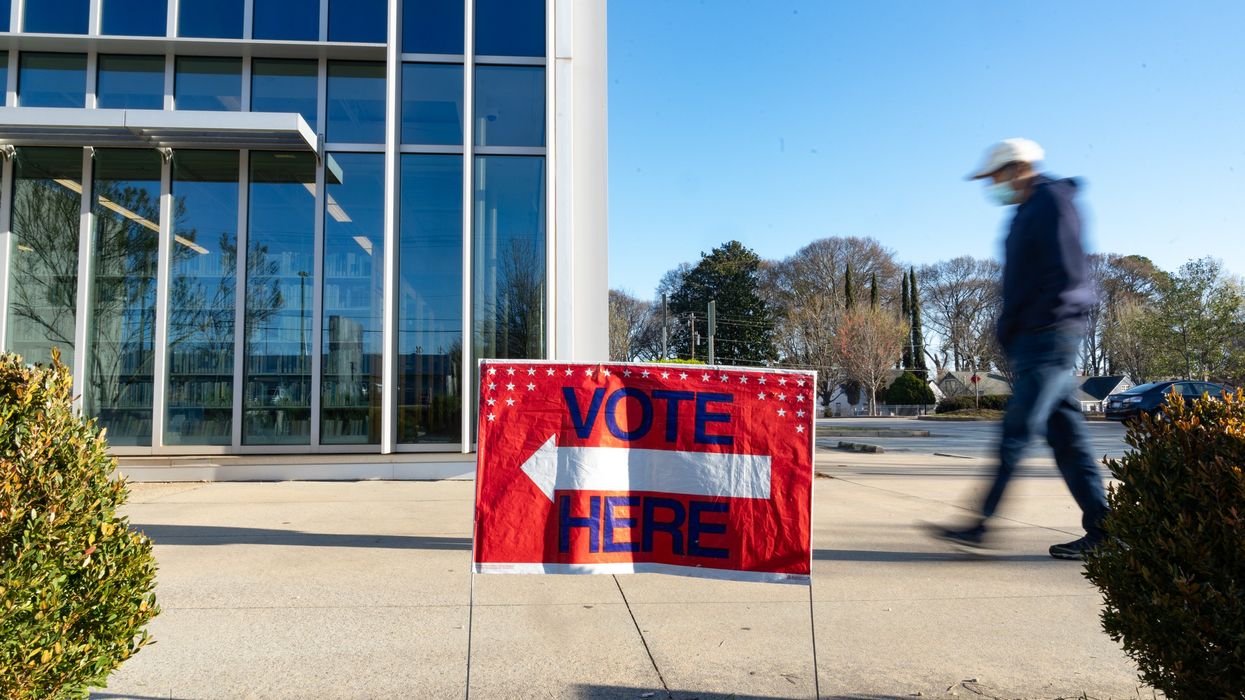Rice is the proposer of Initiative 83, a combination of election reforms to open the primaries to independents and implement ranked-choice in Washington, D.C. She is a national spokesperson for Open Primaries and a member of the board of directors of Unite America.
Coming out of the 1960s civil rights era, most teens registering to vote joined their parents’ political party. I did exactly that, joining the Democratic Party. I didn’t know I had the choice to be an independent voter.
Times change.
I split from the Democratic Party and declared my independence years ago. Its propensity to put party over people hasn’t created a space for those of us who don’t perfectly align with their agenda. The local party, along with the national brand, has lost the trust of many because of this rigidity. Big tent? I don’t see it.
I had been deeply disturbed by the erosion of the fundamentals of democracy for a while. Through my lens, as a Black woman, the racism and misogyny unleashed during the Trump administration was a personal assault. From the immediate dissolution of the pandemic response team to governmental attacks on historically Black and women’s institutions, to the encouragement of the terrorist attacks in Charlottesville, things quickly became more horrific.
Since 1865, a consistent theme in building our democracy — growing ever more urgent — has been securing the right to vote for every American. As a child, I accompanied my parents to the voting center every Election Day. This tradition was not uncommon among Black working- and middle-class families. Kids like me were thrilled to observe the ritual — watching my parents fulfill their sacred duty to vote was an event!
In places throughout America today, though, the two major political parties have made a concerted effort to block a right every registered voter should have: to participate in primary elections.
In a dozen states and the District of Columbia, registered voters who don’t belong to a political party are denied the right to vote in any primary elections. Most states limit participation in at least some primaries. This is not what civil rights leaders fought and died for in achieving passage of the Voting Rights Act of 1965. Those trailblazers marched, bled and died for my right to vote.
Here, today, in 2024, I want that right. I demand my constitutional right to vote without joining a political party. It’s past time.
In Washington, D.C., one in six voters are registered as independents. I am one of them. We are prohibited from voting in our city’s taxpayer-funded primary elections. Our votes are suppressed. In a super-majority, Democratic town, the inability for independents to vote in the primary shuts us out of the election that determines who holds the majority of elected offices. The general election here, for all but two races, simply seals results determined in the primary — without the participation of independents.
Many local elected leaders express support for statehood, pleading that statehood is a voter suppression issue. In a city that has already granted the right for non-citizens to vote in local elections, barring independents like me from voting in the primaries is a slap in the face. Why don’t these same politicians defend my right to vote in our primaries with just as much vigor?
I’ve been told, “you have a choice, register as a Democrat.” That’s not a choice, that’s a directive. And it’s not very democratic; in fact, it feels downright autocratic.
We are long past the days when the party — any party — should be able to rule who can participate at the polls. In the long run, what political party can be successful that refuses to build bridges with the largest group of voters in America? After all, 43 percent of voters across the country identify as independent. That constitutes a larger proportion of voters than either of the major parties. Let that settle in.
How would Democrats feel if the state told them they must register as Republicans to cast their ballots? My right to vote is guaranteed by the Constitution of the United States. How can the D.C. Democratic state party override the U.S. Constitution? Primaries are public elections, run by our government and paid for by us, the taxpayers.
The first bold step to move toward a government that chooses people over politics, country over party, is to liberate independent voters and let us vote. Let’s end voter suppression here in D.C. by opening the primaries to independent voters. We deserve the right to exercise the franchise.
It’s 2024. Let us vote.




















